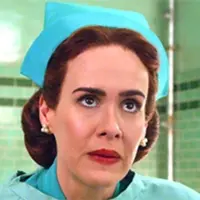Ryan Murphy's work is suffering on Netflix: He now seems to favor winners over underdogs
-

Murphy's recent movie musical The Prom marked his latest disappointing project for Netflix, arriving after lackluster reviews for The Politician, Hollywood and Ratched. The megaproducer's $300 million 2018 Netflix deal gave him cash and independence. But as Vulture's Jackson McHenry points out, it may have made Murphy out of touch with what made his previous shows so great. "The nine shows he’d produced at FX over 15 years, including Nip/Tuck, Glee, and American Horror Story, had always been maximal, attention-grabbing, full of cruelty or gore," says McHenry. "Run through with a strain of righteousness, they focused on underdog characters (theater geeks, gay teens, brunettes) boxing out their own space in the world. The shows could be angry about injustices of class, race, gender, sexuality, and, often, beauty. They could also be scattershot, favoring big swings in tone over consistency. More often than not, they had you by the throat. Murphy’s move to Netflix marked a certain anointment by the industry — at the time, it was called the biggest deal for a TV creator in history — and Murphy talked about it as if he had been invited to sit with the homecoming court at the cafeteria....But with millions in hand and more power than ever, the work Murphy has made at Netflix so far has been curiously tedious. In a review of his spring 2020 miniseries Hollywood, this magazine called it 'so narrow-minded that its sentimentality curls all the way back around to cynicism.' When Ratched premiered in the fall, the Ringer’s headline was simply 'Another Ryan Murphy Netflix Show, Another Miss.' Murphy has always had an eye for clever casting — reviving the career of an older actress, spinning out a career for one of his favorite regular players. Now, he has seemingly grown enamored with the possibility of casting whichever stars he pleases and allergic to challenging them with unflattering material. His sympathies, always conflicted between the world’s brown-haired losers and its glamorous blonde winners, have tipped slightly but conclusively toward the side of the winners." That can be seen in Murphy's seeming obsession with celebrities in his Netflix work. "Murphy has long had a sense of the chutes and ladders of power: who’s climbing up, and who’s pushing everyone else down," says McHenry. "Now that he’s on top at Netflix, he seems to have grown more fond of the whole board game. In his 2019 Time profile, Murphy notes that 'everything I’m working on is about one idea — taking marginalized characters and putting them in the leading story.' He brags about how he has every A-lister’s phone number — except for Meryl Streep’s. ('There’s everybody, and then there’s Meryl.') Those have always been Murphy’s two conflicting motivations, which he’s channeled through his characters all the way back to Popular: identification with the underdog and obsession with the top dog....While Murphy’s star casting goes back to Glee and American Horror Story, on Netflix it has gone into overdrive. See the casting of Cynthia Nixon in Ratched or Bette Midler in The Politician: Both play characters that wink at their own personae (a powerful queer woman, a comedic schemer) and never go deeper than that. Murphy’s desire to center A-listers is made most literal in The Prom. Unlike its Broadway iteration, which humbled and humiliated its stuck-up actor characters, Murphy’s version celebrates the magic of celebrity....The humor and tension of so many of Murphy’s earlier series came from an awareness of the world’s unfairness and the absurdity of in-group politics. Resentment was the grist for his content mill. In his Netflix work, Murphy has created fantasies of acceptance — noble, perhaps, but quickly and cheaply earned. When resentment does appear, it flows outward and down, toward the haters, the critics, or the townspeople of Indiana."
TOPICS: Ryan Murphy, Netflix, Hollywood, The Politician, The Prom, Ratched
